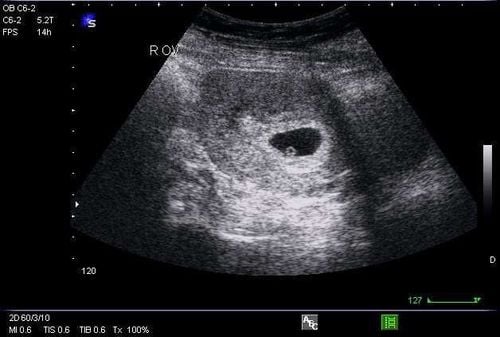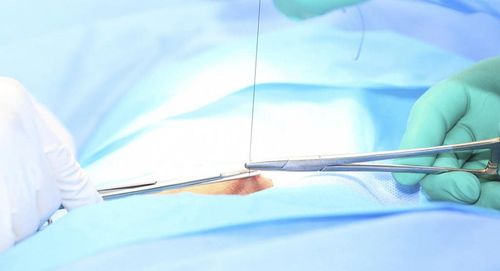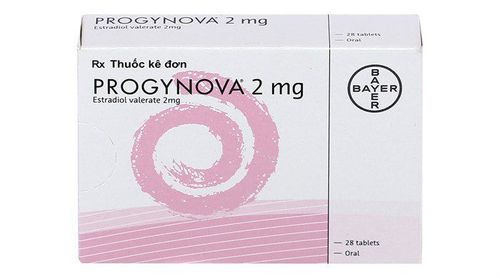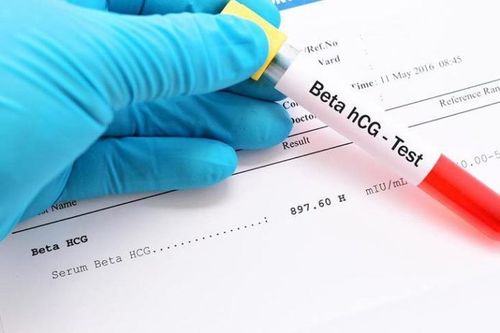In vitro fertilization (IVF) is a widely chosen and common method for treating infertility. The beta hCG test performed 14 days after an embryo transfer is crucial for determining whether the fertilization process has been successful.
1. Understanding In vitro fertilization (IVF)
In vitro fertilization (IVF) is a widely used infertility treatment in which fertilization occurs outside the body. Once embryos are formed, they are transferred into the uterus for further development.
The typical IVF process includes the following steps:
- Both partners undergo comprehensive evaluations. The woman is tested for reproductive hormones levels, infectious diseases, and undergoes gynecological ultrasounds. The man's sperm health is analyzed, and screened for any infections.
- The woman receives medications to stimulate her ovaries for 9–11 days. Close monitoring ensures the correct timing of an injection to trigger ovulation.
- About 36–40 hours after ovulation is triggered, eggs are retrieved under anesthesia, while the male partner provides a sperm sample.
- The sperms are then combined with the egg via a laboratory procedure to form embryos. Typically, the embryos are cultured for 2–5 days. High-quality embryos are transferred into the uterus, while others may be cryopreserved for future use.
- Embryo Transfer: is the most crucial step in IVF and performed when the uterine lining meets the optimal thickness and quality for embryo implantation.
- A beta hCG blood test is conducted 14 days post-transfer to confirm pregnancy.
- If successful, ongoing prenatal care and monitoring are provided.
2. Beta hCG Testing 14 Days After Embryo Transfer
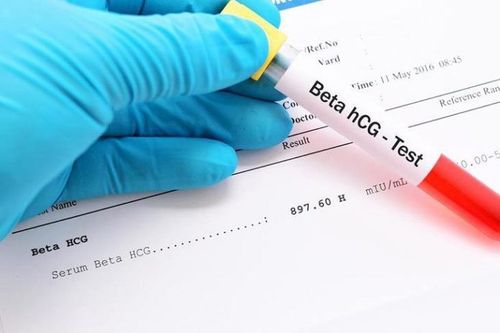
2.1. What Is hCG Hormone ?
Human chorionic gonadotropin (hCG) is a hormone secreted by the placenta shortly after fertilization and embryo implantation. It serves as a critical marker for confirming pregnancy and monitoring fetal development during early gestation.
In non-pregnant individuals, their hCG level would remain under 5 mIU/ml, while a level of 25 mIU/ml or above confirms pregnancy. Additionally, borderline levels of 6–24 mIU/ml requires further testing to confirm pregnancy. In other cases, abnormally low levels may indicate miscarriage, embryonic arrest, or ectopic pregnancy. Lastly, abnormally high levels could suggest multiple pregnancies, molar pregnancy, or ectopic pregnancy.
2.2. Importance of Beta hCG Testing After Embryo Transfer
Normally, hCG test is performed 14 days after the transfer. An hCG level >25 mIU/ml typically confirms pregnancy. Since hCG levels can rise rapidly, usually doubling every 48–72 hours during early pregnancy, a significant rise in subsequent tests, usually an increase of 1.5 fold or above, may indicate healthy pregnancy progression.
If there is a low or slow rise of hCG levels coupled with symptoms such as abdominal pain or vaginal bleeding, this may indicate pregnancy deterioration and high risks of miscarriage. However, immediate medical attention may still salvage the pregnancy if hCG levels improve by two folds 48 hours after appropriate interventions.
If the beta hCG test is abnormally high, there is a possibility of multiple pregnancies. However, if you have not had an ultrasound and discover symptoms such as vaginal bleeding, abdominal pain during prenatal care, it is essential to consult your physician to diagnose ectopic pregnancy.
If the hCG level remains stable after two days of testing, further monitoring is required. A drop in hCG levels of under 5 mIU/ml may indicate a miscarriage. In such cases, frozen embryos can be transferred into the uterus during subsequent cycles.
After the implanted embryo has shown healthy development, the mother should prioritize rest, maintain a nutritious diet, engage in appropriate physical activity, and most importantly, attend regular ultrasounds and prenatal checkups as scheduled by the doctor to ensure a safe pregnancy.
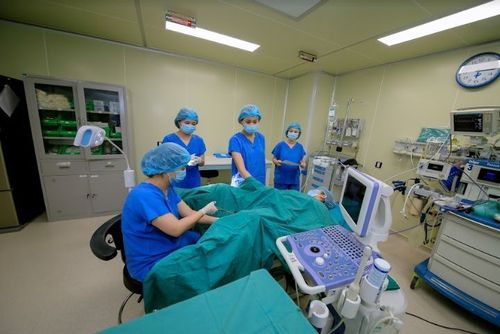
Vinmec IVF Center of Assisted Reproduction
Founded in November 2014, the Vinmec IVF Center is equipped with state-of-the-art facilities and staffed by a team of highly qualified specialists, including professors, doctors, and international experts.To date, the center has successfully supported over 1,000 infertile couples reaching pregnancy, achieving a success rate of 45–50%, on par with IVF in developed countries such as the United States, the United Kingdom, and Australia.
To arrange an appointment, please call HOTLINE or make your reservation directly HERE. You may also download the MyVinmec app to schedule appointments faster and manage your reservations more conveniently.
To arrange an appointment, please call HOTLINE or make your reservation directly HERE. You may also download the MyVinmec app to schedule appointments faster and manage your reservations more conveniently.

